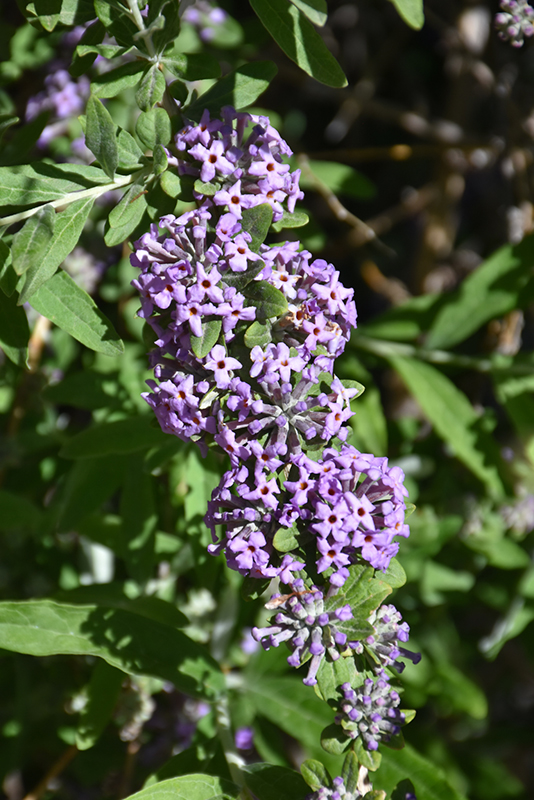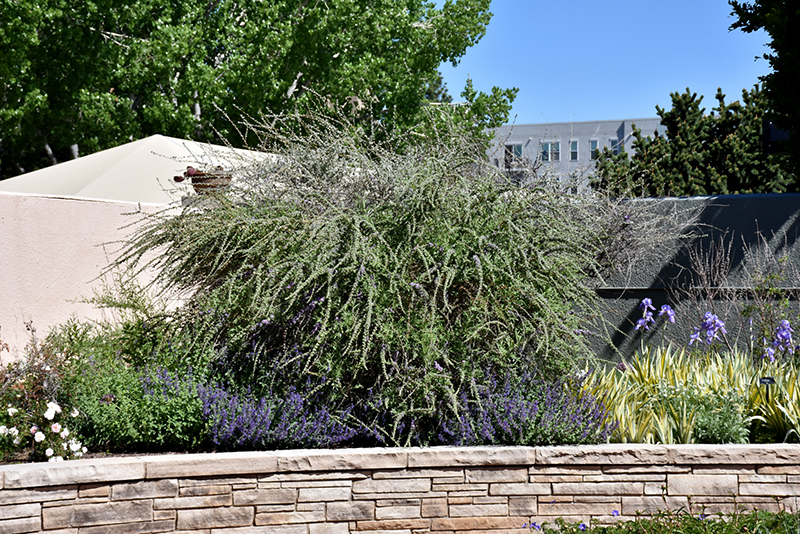Alternate Leaf Butterfly Bush*
Buddleia alternifolia
* This is a "special order" plant - contact store for details
Height: 12 feet
Spread: 12 feet
Sunlight:
![]()
Hardiness Zone: 5b
Other Names: Fountain Butterfly Bush, Weeping Butterfly Bush
Description:
A sizeable garden shrub with showy purple-blue flowers in late summer when little else blooms, and attracts butterflies; may treat as a perennial and cut it back to the ground each spring as it regrows vigorously and blooms on new wood
Ornamental Features
Alternate Leaf Butterfly Bush features showy panicles of fragrant lilac purple flowers at the ends of the branches from mid summer to mid fall. The flowers are excellent for cutting. It has green deciduous foliage. The fuzzy narrow leaves do not develop any appreciable fall color.
Landscape Attributes
Alternate Leaf Butterfly Bush is an open multi-stemmed deciduous shrub with an upright spreading habit of growth. Its average texture blends into the landscape, but can be balanced by one or two finer or coarser trees or shrubs for an effective composition.
This is a relatively low maintenance shrub, and is best pruned in late winter once the threat of extreme cold has passed. It is a good choice for attracting bees, butterflies and hummingbirds to your yard, but is not particularly attractive to deer who tend to leave it alone in favor of tastier treats. It has no significant negative characteristics.
Alternate Leaf Butterfly Bush is recommended for the following landscape applications;
- Mass Planting
- General Garden Use
- Container Planting
Planting & Growing
Alternate Leaf Butterfly Bush will grow to be about 12 feet tall at maturity, with a spread of 12 feet. It tends to be a little leggy, with a typical clearance of 2 feet from the ground, and is suitable for planting under power lines. It grows at a fast rate, and under ideal conditions can be expected to live for approximately 20 years.
This shrub should only be grown in full sunlight. It is very adaptable to both dry and moist locations, and should do just fine under average home landscape conditions. It is not particular as to soil type or pH, and is able to handle environmental salt. It is highly tolerant of urban pollution and will even thrive in inner city environments. This species is not originally from North America.
Alternate Leaf Butterfly Bush makes a fine choice for the outdoor landscape, but it is also well-suited for use in outdoor pots and containers. Its large size and upright habit of growth lend it for use as a solitary accent, or in a composition surrounded by smaller plants around the base and those that spill over the edges. It is even sizeable enough that it can be grown alone in a suitable container. Note that when grown in a container, it may not perform exactly as indicated on the tag - this is to be expected. Also note that when growing plants in outdoor containers and baskets, they may require more frequent waterings than they would in the yard or garden.
* This is a "special order" plant - contact store for details


